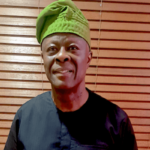Anglicising Nigerian names has a long history. Still, it does not make it right. It probably resulted from a lazy habit in the news media. Well, someone has to take the blame, right? I want to discuss this at some length here to help turn us away from the path of dragging the English language into everything as if it is a sign of civilisation. I will discuss a few instances to make my point.
The late Chukwuemeka Odumegwu Ojukwu was conferred with the traditional title of Ikemba by the paramount ruler of his community, Nnewi, when he returned from exile in Ivory Coast in 1982. He had gone there 50 years ago this month to seek peace as his dream Biafra Republic was collapsing in January 1970. He was then called Ikemba of Nnewi. He thought it was improper. An English word had been dragged into his traditional Igbo title. In his humorous way, he gently chided us by pointing out that the word ‘of’ does not exist in the Igbo language. The word was subsequently deleted and he became Ikemba Nnewi.
Sir Ahmadu Bello, the late premier of the Northern Region, was conferred with the traditional title of Sardauna. Until his death in January, 1966, he was addressed as Sir Ahmadu Bello, Sardauna of Sokoto. Here again the English word ‘of’ intruded. I am sure he did not bother to correct us, taking this minor irritation in his princely stride.
Lt-General Jerry Useni took on the same title as Sardauna of Plateau. When the state was split into Plateau and Nasarawa states, with about half of his kingdom gone, he quickly made it clear that he was now Sardauna of Plateau and Nasarawa. He too has not, at least to my hearing, asked that the superfluous word, ‘of’ be deleted.
We now know that the late premier should have been properly addressed as Sardaunan Sokoto. That is the right Hausa rendering of the title. Useni might as well adopt this and be addressed properly as Sardaunan Plateau.
I regret to say, however, that the word ‘of’ has managed to attach itself to the titles of our traditional rulers and cannot be removed without doing some violence to those titles. A few examples: the Sultan of Sokoto; the Emir of Kano; the Shehu of Borno; the Igwe of Onitsha; the Ooni of Ife; the Oba of Benin; the Shehu of Borno; the Amanyanabo of Opobo. Is it possible, I wonder, for the traditional councils in these places to find a way of deleting the word ‘of’ from the titles of their paramount rulers, seeing as the word does not exist in the various mother tongues? They could give us a proper equivalent of the word ‘of’ in their mother tongues.
On page 6 of the Daily Trust of January 20, I found this headline: Almajiris victims of neglect – Sultan. This is a more serious case of anglicising an indigenous name. Almajiri is a Hausa word. Should it be almajiris as a plural of the word? Happily, no. Turn to the front page of the Daily Trust of January 11. An inside page story on the almajiri was promoted on the front page of the paper. The paper used the word almajirai as the plural of the almajiri. I want to see Almajirai in and almajiris out permanently. I doubt that the sultan referred to them as almajiris.
There is a relentless push for Americanising our spellings. We should be careful about this. As a former British colony, let us honour our imperial masters by retaining the spelling of words they bequeathed to us. On page 18 of its issue of Daily Trust, the sub-editor opted for the American spelling and wrote: ‘Why I make films, practice medicine.’ The Americans use practice as both noun and verb. The English differentiate the two: practise as a verb and practice as a noun. The young doctor practises medicine.
On page 7 of the same issue, we found this headline: Stop producing kids you can’t cater for – Obaseki. If your wife gave birth this morning, would you tell your friend that she produced a baby girl? Animals produce but human beings give birth. The gubernatorial order should have read: Stop having kids you can’t cater for… By the way, the Americans have kids but the English have children.
We found this headline on page 22 of the same issue of the paper: In this day and age, children still need training. Colloquial expressions are used in headlines to humour the readers. It had no place in this particular headline.
On page 8 of the Daily Trust of January 19, we found this headline: Amotekun: Minister cautions against infraction of constitution. It is a cardinal principle in headline casting that the familiar word must be the preferred to the unfamiliar word. Infraction is an unfamiliar word. Breach is the more familiar word and should have been used instead.
The cartoon on page 13 of the same issue shows two friends discussing. One says: Politicians say with need to strengthen our judiciary. His friend responds: Yes, but only to pass on judgment in the favor. I am sure you could make a better sense of it than me.
A repeated story is an editor’s nightmare. I am sure the editor must have bitten his fingers when he saw these. January 20, page 8: Yoruba World Congress plans solidarity walk tomorrow. January 20, page 22: Operations Amotekun: Yoruba World Congress to hold solidarity walk January 21.
January 14, page 4: Man allegedly kills mother in Imo. You would think he killed a strange animal called mother. As the intro to the story shows, the man allegedly killed his mother. There was no reason not to say so in the headline.
Same page: Accountant gets 18-yr-jail term. The briefer the headline, the better. It should have been this: Accountant jailed 18 years. Superfluity is a curse in headlines.
I found the most humorous headline on page 30 of January 14: Woman sells cheating husband to his mistress for $17. Every woman pushed to the wall could have a creative solution to her problem with her cheating husband.
Sometimes the sub-editor has problems with deciding which competing stories in the same story should get the headline. If he is unable to resolve this, we usually find such headlines as this: 41 die, 69 babies born at Benue IDP camp. He ought to have settled for either the number of the dead or the number of babies born in the camp. Not every piece of information contained in a story need to be played up in the headline. The angle of the story usually makes the decision as to which information must make the headline easier. It is a path walked by generations of editors.
January 11, front page lead: Deaths, killings, abductions foul early 2020. This is another instance of the headline discussed above. Here we have three competing pieces of information in the story. The sub-editor decided to accommodate them all. It is unprofessional. The body of the story refers to tragic deaths. If you take out that, killings and abductions would be properly classified as violent crimes ushering in 2020. The word ‘foul’ in the headline is judgmental.
 Join Daily Trust WhatsApp Community For Quick Access To News and Happenings Around You.
Join Daily Trust WhatsApp Community For Quick Access To News and Happenings Around You.


